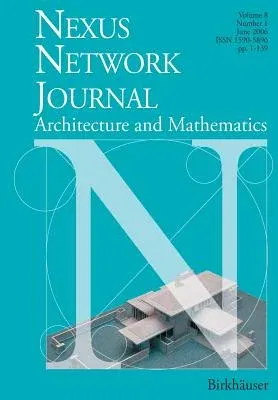Nexus Network Journal 8,1 (2006)Paperback - 2006, 14 July 2006

Qty
1
Turbo
Ships in 2 - 3 days
In Stock
Free Delivery
Cash on Delivery
15 Days
Free Returns
Secure Checkout
Part of Series
Nexus Network Journal
Print Length
139 pages
Language
English
Publisher
Birkhauser
Date Published
14 Jul 2006
ISBN-10
376437747X
ISBN-13
9783764377472
Description
Product Details
Book Edition:
2006
Book Format:
Paperback
Country of Origin:
US
Date Published:
14 July 2006
Dimensions:
24.41 x
16.99 x
0.79 cm
ISBN-10:
376437747X
ISBN-13:
9783764377472
Language:
English
Location:
Basel
Pages:
139
Publisher:
Series:
Weight:
240.4 gm

